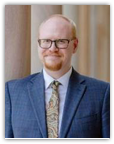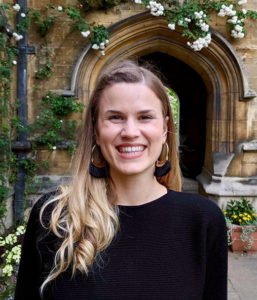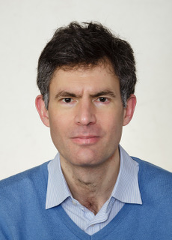Select members of the Society serve on an Executive Committee responsible for overseeing the strategic direction of the ISIH and its day-to-day governance. Nominations are solicited from the membership by e-mail on an annual basis, and appointments are made by a four-strong elections and nominations subcommittee. Committee members are expected to serve a three-year term.
President
Sarah Hutton (University of York and Aberystwyth University)
 Sarah Hutton is Honorary Visiting Professor in the Department of Philosophy at the University of York, and Professor Emeritus of Aberystwyth University. She studied at New Hall, Cambridge, and the Warburg Institute, University of London. The main focus of her research is in early modern intellectual history, where her interests extend from history of philosophy, to the history of science, the history of medicine, and seventeenth-century literature. She has long been interested in the Cambridge Platonists and has pioneered research on women in early modern philosophy and science. Her principal publications are British Philosophy in the Seventeenth Century (OUP, 2015) and Anne Conway, a Woman Philosopher (CUP, 2004). Other publications include Women, Science and Medicine (with Lynette Hunter), Newton and Newtonianism (with James Force) (Kluwer, 2004), Studies on Locke (with Paul Schuurman) (Springer, 2008). She has also edited early modern texts: Richard Ward’s Life of Henry More (Kluwer, 2000), Ralph Cudworth, A Treatise Concerning Eternal and Immutable Morality (CUP 1996), and The Conway Letters, a revised edition of Marjorie Nicolson’s 1930 original (OUP, 1992). She is a founding member of the editorial boards of The British Journal of the History of Philosophy and Oxford Studies in Early Modern Philosophy. She has served on the board of management of The Journal of the History of Philosophyand is advisor to such projects as Project Vox and New Narratives in the History of Philosophy. She was for 25 years director of International Archives of the History of Ideas.
Sarah Hutton is Honorary Visiting Professor in the Department of Philosophy at the University of York, and Professor Emeritus of Aberystwyth University. She studied at New Hall, Cambridge, and the Warburg Institute, University of London. The main focus of her research is in early modern intellectual history, where her interests extend from history of philosophy, to the history of science, the history of medicine, and seventeenth-century literature. She has long been interested in the Cambridge Platonists and has pioneered research on women in early modern philosophy and science. Her principal publications are British Philosophy in the Seventeenth Century (OUP, 2015) and Anne Conway, a Woman Philosopher (CUP, 2004). Other publications include Women, Science and Medicine (with Lynette Hunter), Newton and Newtonianism (with James Force) (Kluwer, 2004), Studies on Locke (with Paul Schuurman) (Springer, 2008). She has also edited early modern texts: Richard Ward’s Life of Henry More (Kluwer, 2000), Ralph Cudworth, A Treatise Concerning Eternal and Immutable Morality (CUP 1996), and The Conway Letters, a revised edition of Marjorie Nicolson’s 1930 original (OUP, 1992). She is a founding member of the editorial boards of The British Journal of the History of Philosophy and Oxford Studies in Early Modern Philosophy. She has served on the board of management of The Journal of the History of Philosophyand is advisor to such projects as Project Vox and New Narratives in the History of Philosophy. She was for 25 years director of International Archives of the History of Ideas.
General Secretary
Diego Lucci (American University in Bulgaria)
 Diego Lucci is a Professor of Philosophy and History at the American University in Bulgaria and a Fellow of the Royal Historical Society. He holds a PhD from the University of Naples Federico II and has also taught at Boston University and the University of Missouri St. Louis. He has held research fellowships at various institutions, including, among others, the University of Hamburg, Gladstone’s Library, and the Institute of Historical Research in London. He has lectured at a number of universities and institutes in Europe, the United States, and Australia. His research concentrates on the philosophy and intellectual history of the Age of Enlightenment, with a focus on English philosophical, political, and religious thought. He is the author of three books and over fifty journal articles and book chapters. He is also the co-editor of five volumes, among which are Atheism and Deism Revalued: Heterodox Religious Identities in Britain, 1650-1800 (Ashgate, 2014, with Wayne Hudson and Jeffrey R. Wigelsworth) and Philosophy, Religion, and Science in Seventeenth-Century England (special issue of the Journal of Early Modern Studies, vol. 11, no. 1, 2022, with Sorana Corneanu and Benjamin I. Goldberg). His first monograph is a study of the deists’ hermeneutics titled Scripture and Deism: The Biblical Criticism of the Eighteenth-Century British Deists (Lang, 2008). His most recent monograph is John Locke’s Christianity (Cambridge University Press, 2021), the first-ever comprehensive study of Locke’s religion. He has been the convener of various international conferences, including the 2017 Conference of the International Society for Intellectual History and the 2022 John Locke Conference, both held at the American University in Bulgaria.
Diego Lucci is a Professor of Philosophy and History at the American University in Bulgaria and a Fellow of the Royal Historical Society. He holds a PhD from the University of Naples Federico II and has also taught at Boston University and the University of Missouri St. Louis. He has held research fellowships at various institutions, including, among others, the University of Hamburg, Gladstone’s Library, and the Institute of Historical Research in London. He has lectured at a number of universities and institutes in Europe, the United States, and Australia. His research concentrates on the philosophy and intellectual history of the Age of Enlightenment, with a focus on English philosophical, political, and religious thought. He is the author of three books and over fifty journal articles and book chapters. He is also the co-editor of five volumes, among which are Atheism and Deism Revalued: Heterodox Religious Identities in Britain, 1650-1800 (Ashgate, 2014, with Wayne Hudson and Jeffrey R. Wigelsworth) and Philosophy, Religion, and Science in Seventeenth-Century England (special issue of the Journal of Early Modern Studies, vol. 11, no. 1, 2022, with Sorana Corneanu and Benjamin I. Goldberg). His first monograph is a study of the deists’ hermeneutics titled Scripture and Deism: The Biblical Criticism of the Eighteenth-Century British Deists (Lang, 2008). His most recent monograph is John Locke’s Christianity (Cambridge University Press, 2021), the first-ever comprehensive study of Locke’s religion. He has been the convener of various international conferences, including the 2017 Conference of the International Society for Intellectual History and the 2022 John Locke Conference, both held at the American University in Bulgaria.
Treasurer
Adam Sutcliffe (King’s College London)
 Adam Sutcliffe is Reader in European History at King’s College London, where he contributes to several MA programmes as well as to the intercollegiate University of London MA in the History of Political Thought and Intellectual History. He has a long-standing interest in Spinoza and his influence, and is currently working primarily on religious difference and radical politics in western Europe in the late eighteenth and early nineteenth centuries, and on the modern history of the idea of Jewish world historical purpose. He is the author of Judaism and Enlightenment (CUP, 2003), and the co-editor, most recently, of Philosemitism in History (CUP, 2011), and of two volumes which should appear shortly: The Cambridge History of Judaism, volume VII: The Early Modern World, 1500-1815 (CUP), and History, Memory and Public Life: The Past in the Present (Routledge).
Adam Sutcliffe is Reader in European History at King’s College London, where he contributes to several MA programmes as well as to the intercollegiate University of London MA in the History of Political Thought and Intellectual History. He has a long-standing interest in Spinoza and his influence, and is currently working primarily on religious difference and radical politics in western Europe in the late eighteenth and early nineteenth centuries, and on the modern history of the idea of Jewish world historical purpose. He is the author of Judaism and Enlightenment (CUP, 2003), and the co-editor, most recently, of Philosemitism in History (CUP, 2011), and of two volumes which should appear shortly: The Cambridge History of Judaism, volume VII: The Early Modern World, 1500-1815 (CUP), and History, Memory and Public Life: The Past in the Present (Routledge).
Communications Director
Michelle Pfeffer (University of Oxford)
Michelle Pfeffer is a Prize Fellow (JRF) at Magdalen College, Oxford and a Teaching Associate in the History Faculty at the University of Oxford. She was previously a Postdoctoral Research Fellow in the Institute for Advanced Studies in the Humanities at The University of Queensland, Australia. Her research explores the history of science, medicine, and religion in early modern Europe. Her PhD, awarded in May 2020, examined the lives and works of a series of lay people who denied the immortality of the soul in early modern England. She is currently working on two projects: the marginalization of astrology throughout the early modern period and an intellectual biography of the controversial theologian William Warburton. Her publications include “The Contribution of the Early Modern Humanities to ‘Disenchantment” in the Journal of Magic, Ritual, and Witchcraft; “The Society of Astrologers (c.1647–1684): Sermons, Feasts and the Resuscitation of Astrology in Seventeenth-Century London” in The British Journal for the History of Science (2021); “Paganism, Natural Reason, and Immortality: Charles Blount and John Toland’s Histories of the Soul” in Intellectual History Review (2020). She has also recently published “The Pentateuch and Immortality in England and the Dutch Republic: The Confessionalisation of a Claim” in Beyond Ancients and Moderns, eds. Ian Maclean and Dmitri Levitin (2021). She is currently co-curating with the anthropologist David Zeitlyn a major exhibition at the Bodleian Library (opening 2024) on the practice of divination and astrology throughout history and across the globe.
Early Career Representative
Elias Buchetmann (University of Rostock)
Elias is research associate and lecturer in early modern history at the University of Rostock. His first book (forthcoming) situates G.W.F. Hegel’s political thought in the context of contemporary constitutional debates, and his latest project pursues the cross-cultural history of women’s political thinking around 1800. He studied at Maastricht, Oxford and London, received his PhD from the European University Institute in Florence, and was a postdoctoral research fellow at Klassik Stiftung Weimar and the Gotha Research Centre. His publications include ‘Die Ermordung Kotzebues und Hegels Philosophie des Rechts’ (Hegel-Studien) and ‘Hegel’s Intervention in Württemberg’s Constitutional Conflict’ (History of European Ideas).
Editors, Intellectual History Review (2007-)
Thomas Ahnert (University of Edinburgh)
Thomas Ahnert is Professor of Intellectual History at the University of Edinburgh. He has published mainly on German and British, in particular Scottish, intellectual history from the seventeenth to the early nineteenth century. His first monograph was a study of the jurist and philosopher Christian Thomasius, Religion and the Origins of the German Enlightenment. Faith and the Reform of Learning in the Thought of Christian Thomasius (2006). This was followed in 2014 by a book on The Moral Culture of the Scottish Enlightenment, 1690 – 1805. With the late Susan Manning he co-edited a volume of essays on Character, Self and Sociability in the Scottish Enlightenment (2011), which was a product of a collaborative research project, directed by Susan Manning and Nicholas Phillipson, on the Science of Man in the Scottish Enlightenment. He has also translated and edited several seventeenth- and early eighteenth-century texts on natural law, including Thomasius’s Institutes of Divine Jurisprudence, with Selections from Foundations of the Law of Nature and Nations (2011). His current projects are a study of Newtonianism in the German lands from the late seventeenth to the early nineteenth century, and a new history of the Scottish Enlightenment.
James A. T. Lancaster (University of Queensland)
 Dr James A. T. Lancaster is an intellectual historian who received his PhD from the Warburg Institute, University of London. He is presently Lecturer in Studies in Western Religious Traditions in the School of Historical and Philosophical Inquiry. Previously, he was a UQ Research Fellow at the Institute for Advanced Studies in the Humanities at the University of Queensland. As a member of the Editorial Board of the Oxford Francis Bacon critical edition, he has published widely on the philosophical and religious thought of Francis Bacon. His research and teaching interests and experience include the history of science and religion, the history of atheism and irreligion, and the history of the psychology of religion.
Dr James A. T. Lancaster is an intellectual historian who received his PhD from the Warburg Institute, University of London. He is presently Lecturer in Studies in Western Religious Traditions in the School of Historical and Philosophical Inquiry. Previously, he was a UQ Research Fellow at the Institute for Advanced Studies in the Humanities at the University of Queensland. As a member of the Editorial Board of the Oxford Francis Bacon critical edition, he has published widely on the philosophical and religious thought of Francis Bacon. His research and teaching interests and experience include the history of science and religion, the history of atheism and irreligion, and the history of the psychology of religion.


